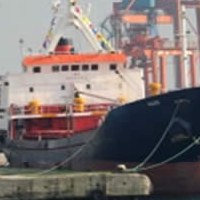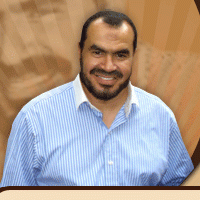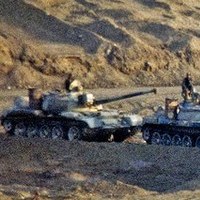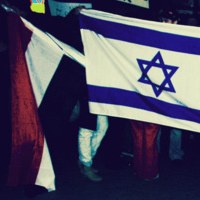![]()
Tue, Jan 25, 2011 | WikiLeaks: Israel Discusses Gaza and West Bank with U.S. | Edited by Crethi Plethi
WikiLeaks: Israel Discusses Gaza and West Bank with U.S.
Document: Israel Security Agency (ISA) Director Yuval Diskin told the USSC, LTG Keith W. Dayton, that Israel’s primary concern with the normalization of operations at the Rafah terminal are derived from U.S. and Palestinian failures to follow through with commitments made in the November 15, 2005 Access and Movements Agreement (AMA), and not with the procedural activities of European Union Border Assistance Mission and the Presidential Guard, whose service Diskin characterized as “very good.” Diskin told the USSC that he continued to support the strengthening of President Abbas and the Presidential Guard, but noted that it was more important to strengthen Fatah as a movement than focus on bolstering Abbas’ personal position.
Source: WikiLeaks
Cable dated:2006-10-12T15:07:00
C O N F I D E N T I A L SECTION 01 OF 02 TEL AVIV 004032
SIPDIS
E.O. 12958: DECL: 10/12/2011
TAGS: PREL, PBTS, KPAL, KWBG, MASS, PINR, EG, JO, IS
SUBJECT: USSC DAYTON RAISES RAFAH, AMA AND BADR BRIGADE WITH ISA DISKINClassified By: Charge d’Affaires Gene A. Cretz. E.O. 12958 Reason 1.4 (B/D).
1. (C) Summary: Israel Security Agency (ISA) Director Yuval Diskin told the USSC, LTG Keith W. Dayton, that Israel’s primary concern with the normalization of operations at the Rafah terminal are derived from U.S. and Palestinian failures to follow through with commitments made in the November 15, 2005 Access and Movements Agreement (AMA), and not with the procedural activities of European Union Border Assistance Mission and the Presidential Guard, whose service Diskin characterized as “very good.” Diskin told the USSC that he continued to support the strengthening of President Abbas and the Presidential Guard, but noted that it was more important to strengthen Fatah as a movement than focus on bolstering Abbas’ personal position. In response to the USSC’s brief on the Palestinian Liberation Army’s Jordan-based Badr Brigade, Diskin told the USSC that he did not have any objections to the Brigade’s proposed deployment to North Gaza, but added that he didn’t believe they would be able to accomplish anything on the ground unless they were incorporated into the Presidential Guard. Diskin presented an analysis of the security situation in Gaza and the West Bank and told the USSC that while clashes between Hamas and elements of Fatah had been fierce, he did not believe the Palestinians were on the verge of a civil war because neither side wanted one due to internal dynamics, and for fear of a future political fallout with the populace at the polls. Diskin provided a bleak assessment of the principal Palestinian security players: Mohammed Dahlan, Rashid Abu Shabak, Tawfic Tirawi and Abu Hisham. He concluded that none were capable of providing the necessary leadership to direct the activities of the security services in both Gaza and the West Bank. Diskin’s view of Egypt’s role in Gaza was that Egypt enjoyed connections with all Palestinian factions, but he felt their influence had declined in the wake of their inability to solve the Corporal Shalit crisis. He added that Egypt could be helpful by strengthening its efforts to curtail rampant smuggling between the Egyptian, Israeli, and Gazan borders. End Summary.
————-
Rafah Passage
————-
2. (C) U.S. Security Coordinator LTG Dayton briefed ISA Director, Yuval Diskin, October 6 on USG and EUBAM positions on the Rafah passage and the need for the normalization of operations at the Rafah crossing. Diskin told LTG Dayton that while EUBAM and the Presidential Guard “were doing a good job,” Israel’s main problem had to do with promises and understandings made with the U.S. side on the November 15, 2005 Agreement on Movement and Access, which were never fulfilled due to what he termed “internal bickering between the State Department and another organ of the U.S. government.” The problem that Diskin spoke of had to do with the passage of certain Palestinians traveling in both directions through the crossing. Diskin went on to say that his agency possessed intelligence which showed Palestinians were utilizing the passage to ultimately travel to Iran and Lebanon in order to increase Hamas capabilities. Diskin’s stated opinion is “once the base of the Agreement on Rafah is not good, it doesn’t matter to me that the procedural aspects of the running of the crossing are good.” Diskin told LTG Dayton that he believed it was important to keep Rafah open, but added that the original agreement was made in different circumstances with a Fatah government, not the current Hamas one: “If we want to approach this seriously, we need to start with the movements of people.” Diskin stated that we should initiate meetings between the U.S., Israel, the Palestinians and EU first, and then later bring the Egyptians into the picture. –
————————————–
Abbas, FATAH and the Presidential Guard
—————————————
3. (C) Diskin told the USSC that he continued to support the enhancement of the power of President Abbas and the Presidential Guard. He went on to say that the long term strategic problem was the weakness of Fatah, not Hamas: “We don’t need to give more power to Abbas; we need to strengthen the power of Fatah as a movement. Currently they are not motivated to do anything. The weakness of the security apparatus stems from the weakness of Fatah.”
————
Badr Brigade
————
4. (C) LTG Dayton asked Diskin for his assessment of the Jordan-based Palestinian Badr Brigade. Diskin stated that he did not see a problem with their proposed deployment to northern Gaza, though he did not believe they would be effective. “They will likely become just another Palestinian group such as the NSF, unless they are absorbed directly into the Presidential Guard.”
————
No Civil War
————
5. (C) LTG Dayton briefed Diskin on USSC efforts to bolster the Palestinian National Security Forces (NSF.) Diskin agreed with the utility of the move and presented an overall security assessment of the situation in Gaza and the West Bank. Diskin stated that a pattern has emerged whereby clashes between Fatah and Hamas in Gaza, where Fatah is weak, elicit strong Fatah responses in the West Bank where Fatah is militarily stronger than Hamas. “I don’t believe that we are on the verge of a Palestinian civil war. Neither side, for their own reasons, want internal armed conflict. They are both against a civil war because Fitna (civil strife, chaos) will cause both sides more problems than they can handle and harms their efforts to garner positive public opinion.” Diskin caveated his assessment with a warning that, should something happen to Haniyeh on the Hamas side, or Mohammed Dahlan or Rashid Abu Shabak on the Fatah side, anything could happen. He added that, “If Abbas were to do something which would cause Hamas to feel their hold on the government is in jeopardy, the situation could deteriorate and make things worse than they are today.”
——————————————–
Search for Palestinian Security Interlocutor
——————————————–
6. (C) The balance of the conversation centered on LTG Dayton’s efforts to identify an effective Palestinian security interlocutor. In response to LTG Dayton’s question of who Diskin would choose to work with if he could make the choice for Palestinians, Diskin told the USSC: “There is no perfect fit to the question you have asked, a couple of people have what you need, but only partly.” He said that the best that you can do would be Mohammed Dahlan and Tawfic Tirawi. He then presented estimations of the primary Palestinian security players; Rashid Abu Shabak, Tawfic Tirawi, Mohammed Dahlan and Abu Hisham. Diskin stated that Rashid Abu Shabak is weaker than he used to be, and under tremendous pressure because President Abbas had put him in an impossible situation, with an impossible mission as Director of Internal Security. Subsequently, Diskin stated “he cannot deliver and is not motivated to do so.” Diskin told LTG Dayton that Tawfic Tirawi is capable of accomplishing some of the things which need to be done in the West Bank. “He is motivated, cruel and decisive, but has no standing in Gaza.”
7. (C) Diskin characterized Mohammed Dahlan as a man who is smart enough, and one who understands the arena and all the players better than anyone, but his capabilities are weaker than they have ever been and he is under a lot of pressure. Dahlan “has no power base in the West Bank and continues to rely on the Preventative Security Organization (PSO) as his power base, but as you have seen, the PSO has been under tremendous pressure from Hamas in Gaza.” XXXXXXXXXXXX Diskin emphasized that “We must keep the PSO alive in Gaza.” Diskin then moved to Abu Hisham and told the USSC that Hisham is “pleasantly honest, he doesn’t lie to us and keeps us informed, he is very accurate, but he has no power base and is not a leader. It puts us both in a bad position.”
———————
Egyptian Role in Gaza
———————
8. (C) In response to LTG Dayton’s question on Egypt’s ability to influence matters in Gaza, Diskin replied that the Egyptians have ties across the Palestinian spectrum within Gaza, but no influence: “The most important thing they can do is stop the smuggling which takes place between their borders with both Gaza and Israel.”
CRETZ



 RSS
RSS












#WikiLeak: #Israel Discusses #Gaza and #WestBank with #US | #PA http://j.mp/fuP8Qs
RT @CrethiPlethi: #WikiLeak: #Israel Discusses #Gaza and #WestBank with #US | #PA http://j.mp/fuP8Qs